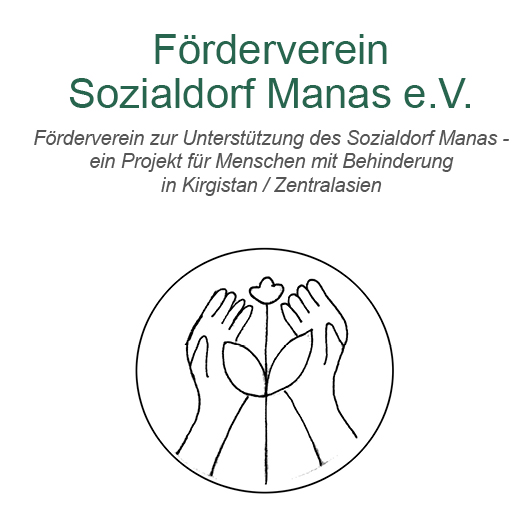
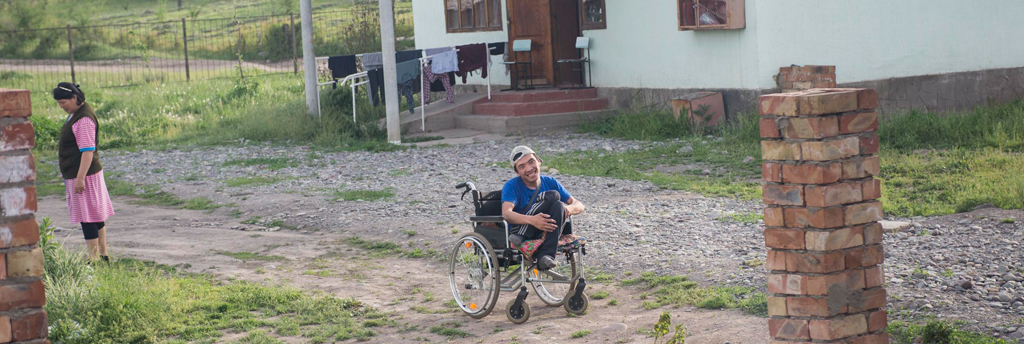
2022
Since the summer of 2021, a lot has changed in the Social Village: more workshops have been opened and the residents no longer work only with felt. As a result of this change, more and more products are sold at bazaars in Kyrgyzstan. In addition, people can order from the Social Village for example baskets made of paper. The proceeds of the sales were used to equip the workshops with new furniture.
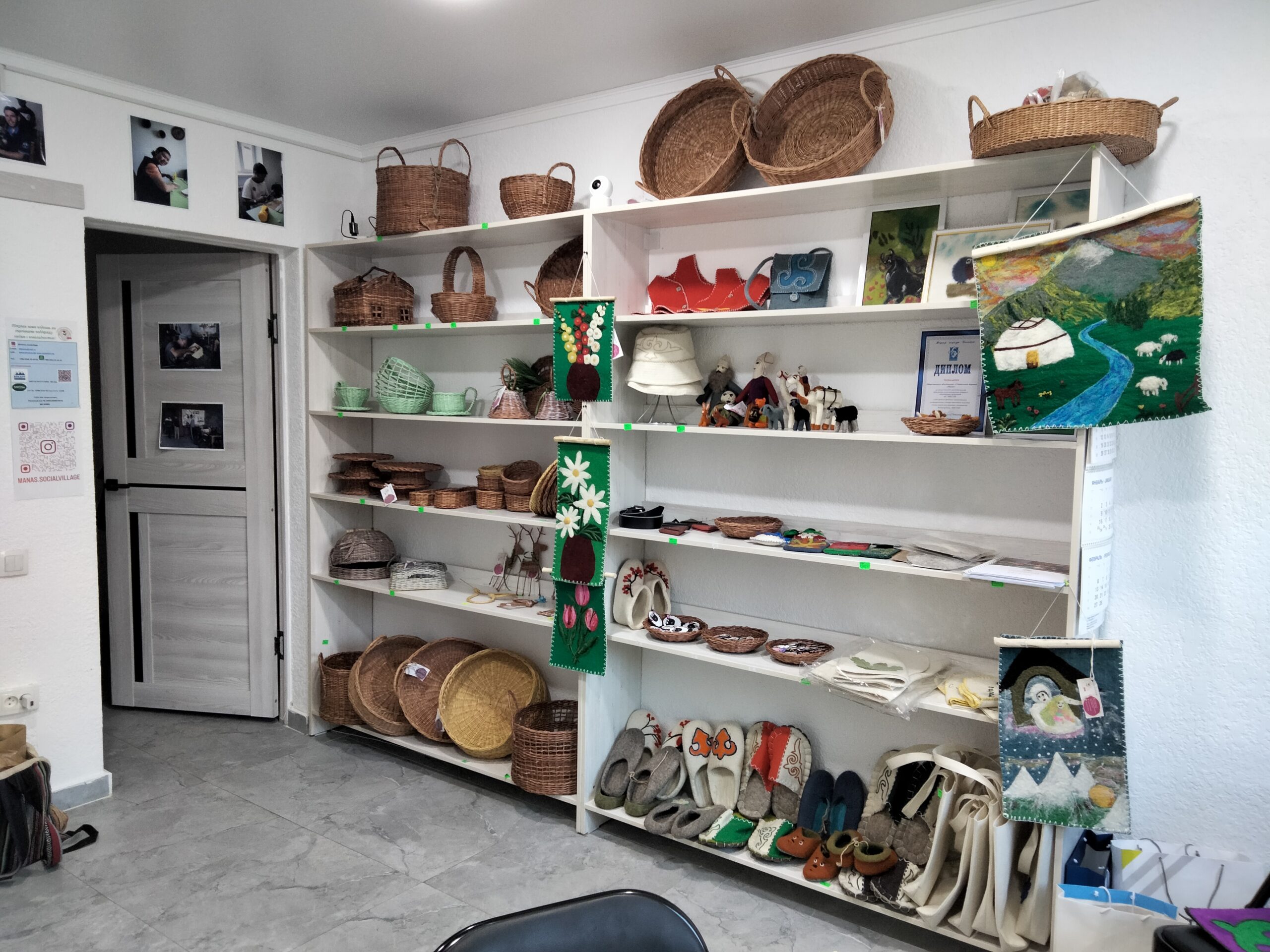
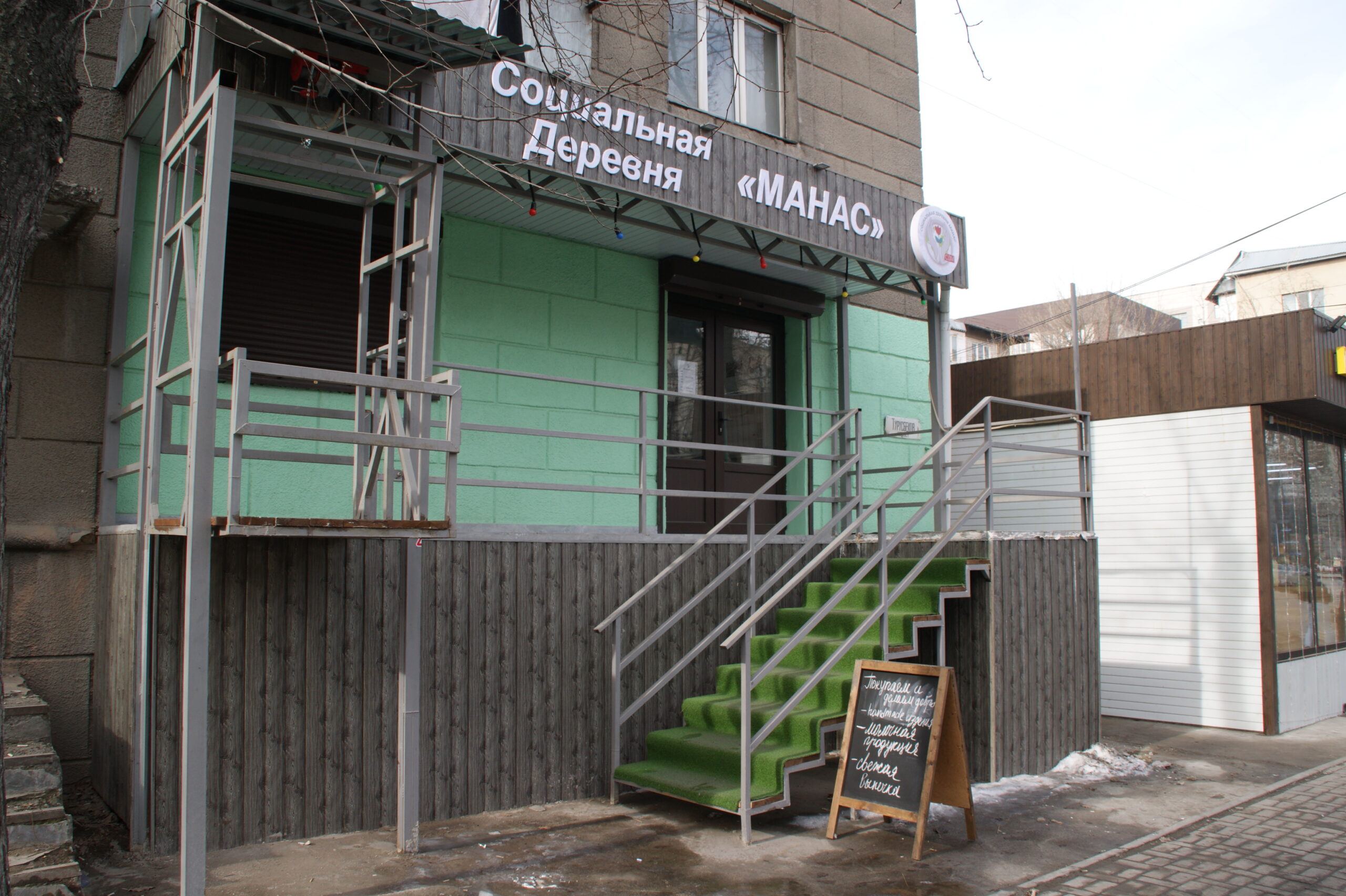
The old flock of sheep was sold and merino sheep were bought instead; the wool from these sheep will be used for felting in the Social Village.
2022 was a year with several major projects. Due to the sharp rise in hay prices, a five-hectare field was purchased. In addition, with the support of the development association and the Camäleon Foundation, an apartment was purchased in Bishkek, which was converted into a store with the help of the German embassy, among others. In this store, dairy products and baked goods from the external residential group are sold, as well as other products from the workshops of the Social Village. In addition, it is intended to provide a place where people can report about the Social Village.
In the summer of 2022, another project was successfully completed: the conversion of the garages into workshops and the addition of a yurt. After the inauguration of the new workshop and yurt, a seminar was held there with employees from Blagoe Delo.
The professional cooperation between the two institutions for adults with disabilities began back in 2021. At that time, there were two visits from Kyrgyz side to Russia, during which the head of the Social Village and one employee each were able to get to know the institution and take part in seminars.
Gulja, the head of the Social Village, does a lot of lobbying in the capital Bishkek in addition to her work in the Social Village – she campaigns for the rights of people with disabilities. Her many efforts were recognized by the president in early 2022, when she became the first person to receive state recognition for running a social institution.
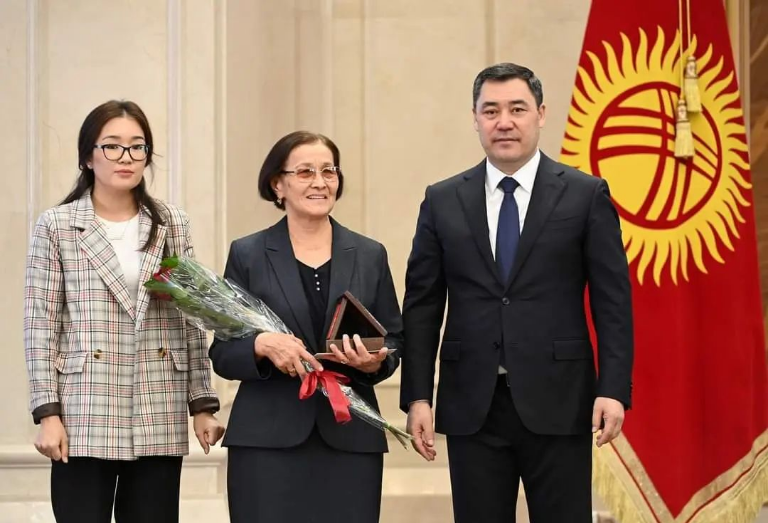
2021
In recent years, the Social Village has become more and more well-known in Kyrgyzstan, and people and organizations keep bringing donations – especially food and clothing.
In 2021, a food warehouse was built next to the summer kitchen for this purpose. Sapia, one of the housekeepers, documents very precisely which donations were made and how much food is needed for each week.
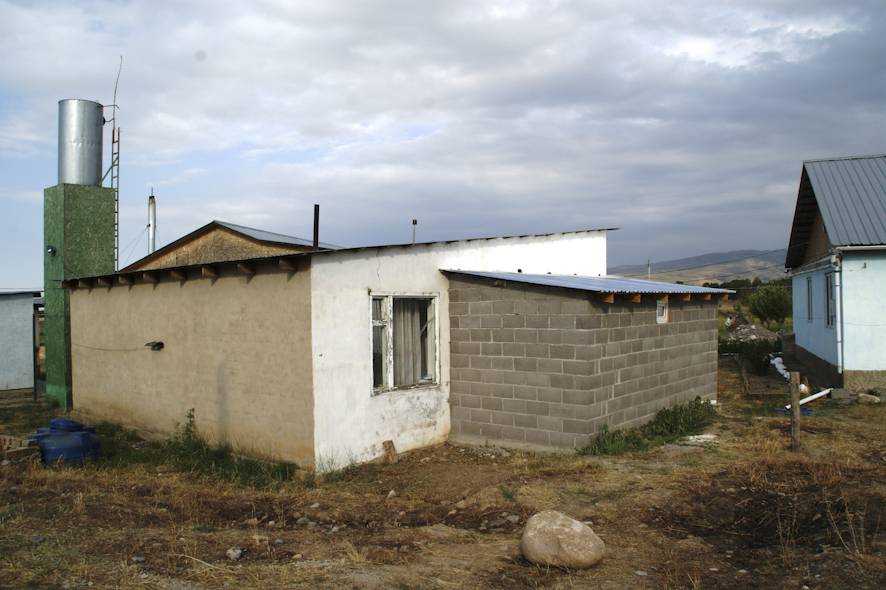
On the recommendation of the veterinarian, a barn was built for the sheep so that sheep and cows live in separate pens. Thanks to a generous donation from the Rotary Club of Singen, the Social Village was able to buy 3 cows, 2 of which were pregnant. At the moment there are 8 cows, 6 calves and 16 sheep living in the Social Village.
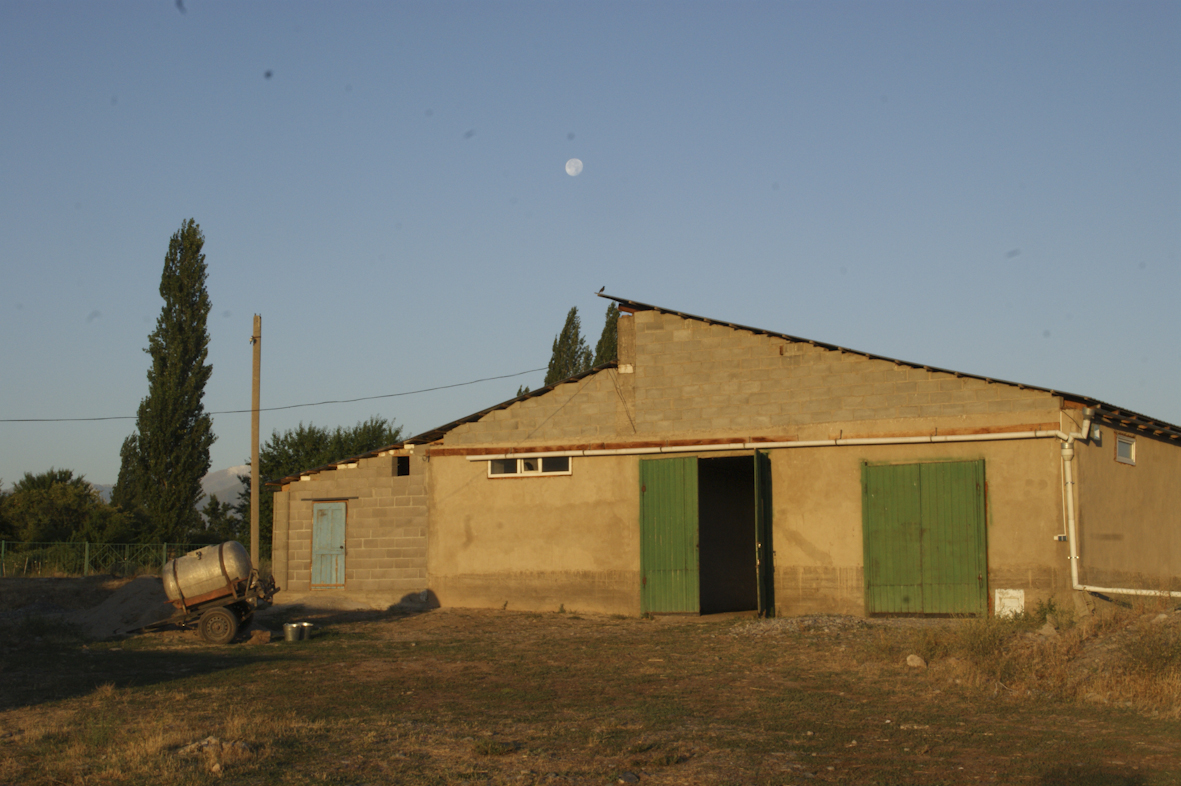
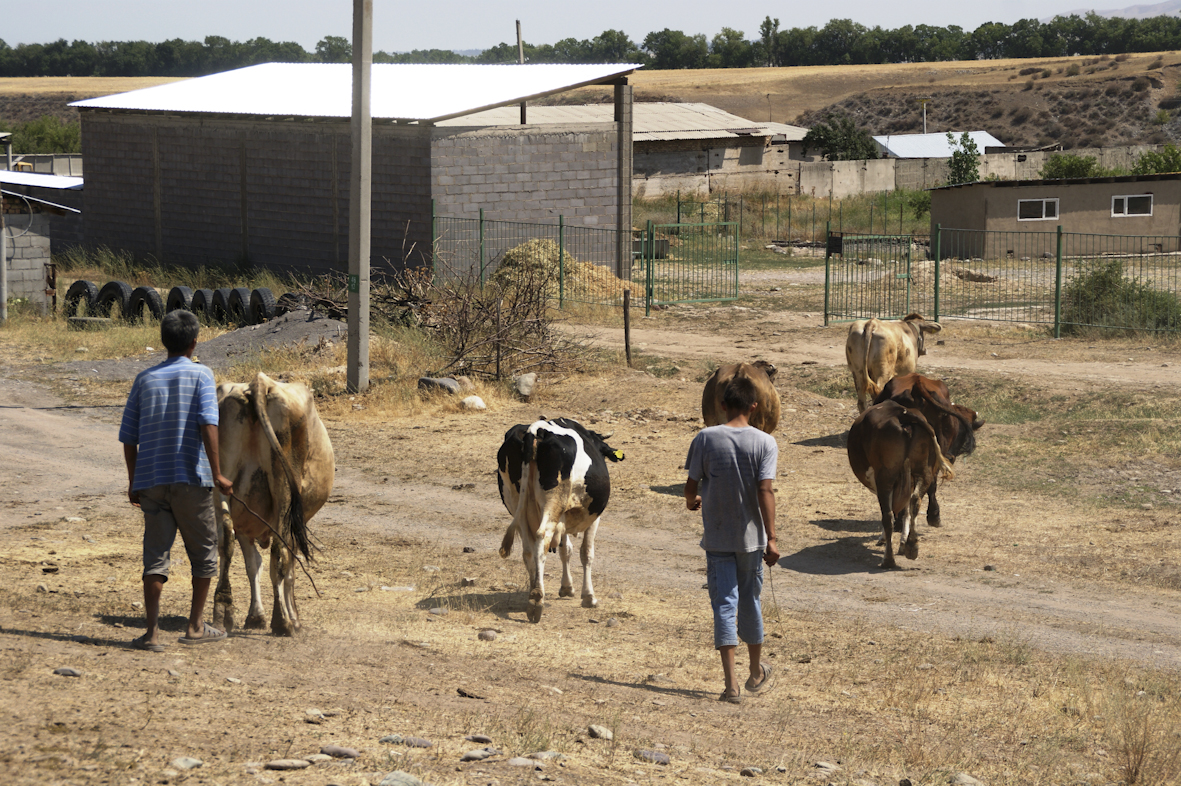
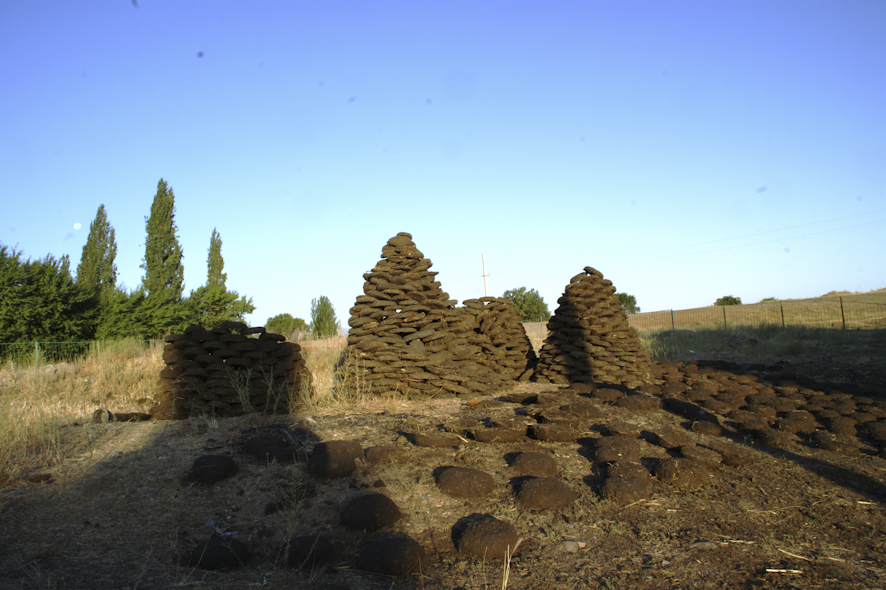
2020
From September 2019 to spring 2020, four residents attended Lyceum 43 near the airport and received training in sewing and organic gardening. Other residents completed a reduced training as cook or computer specialist before their time at the Social Village there.
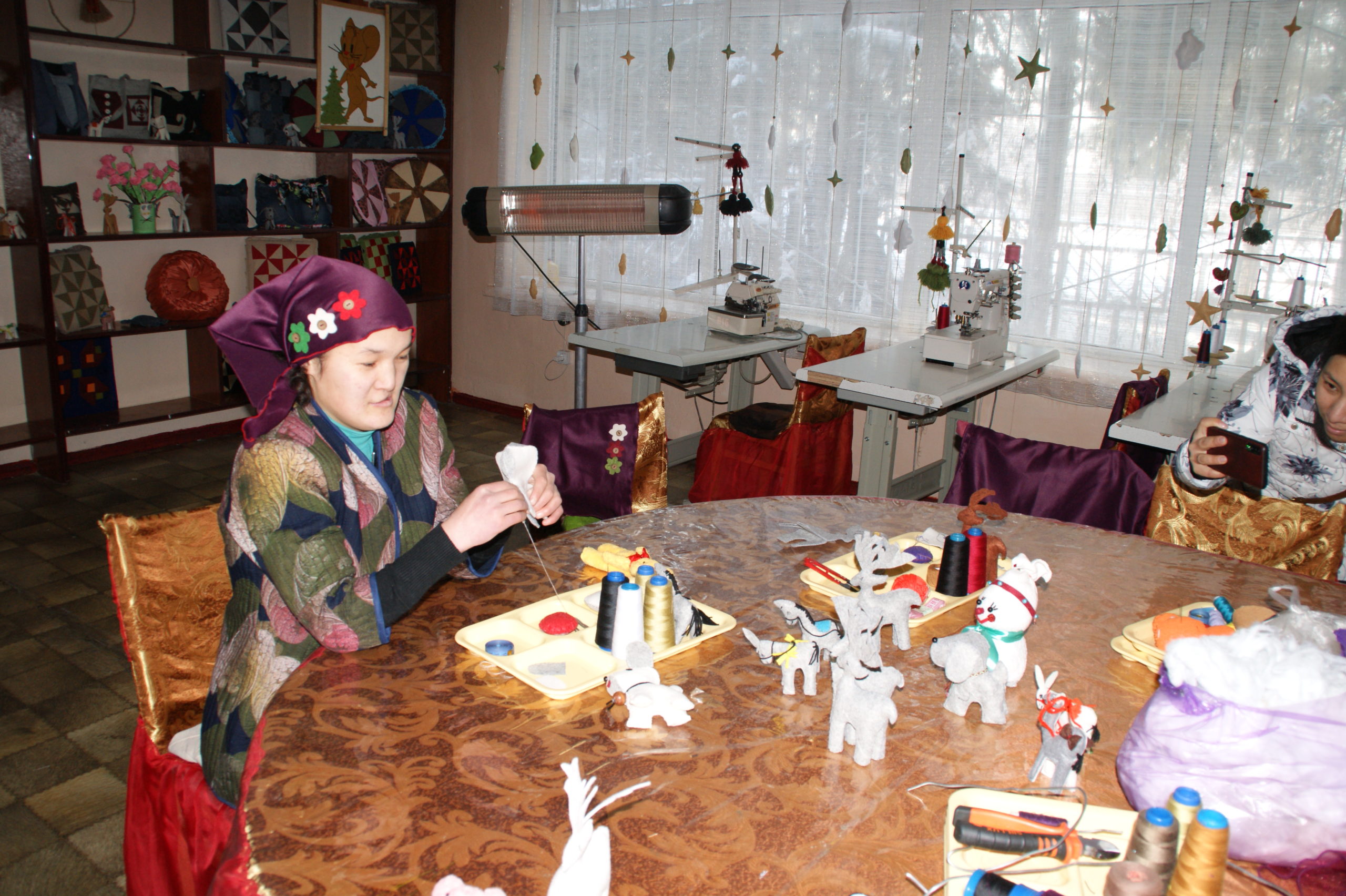
A contract between the Social Village and Lyceum 43 was planned, but due to the pandemic this could not be implemented. For this reason, the residents had to return to the Social Village earlier than planned.
In 2020, a support group was created for weaker residents who are unable to work in the felt workshop and are supervised and supported by the social pedagogue during workshop time.
For a large part of the year, as well as in 2021, the Social Village was in strict quarantine. Visitors were not allow
ed to enter the houses. The employees worked for months with mouth and nose protection. To ensure that the emp
loyees had contact with as few people as possible on their way to work, one of them picked up all those living outside the village by car every day and brought them home again.
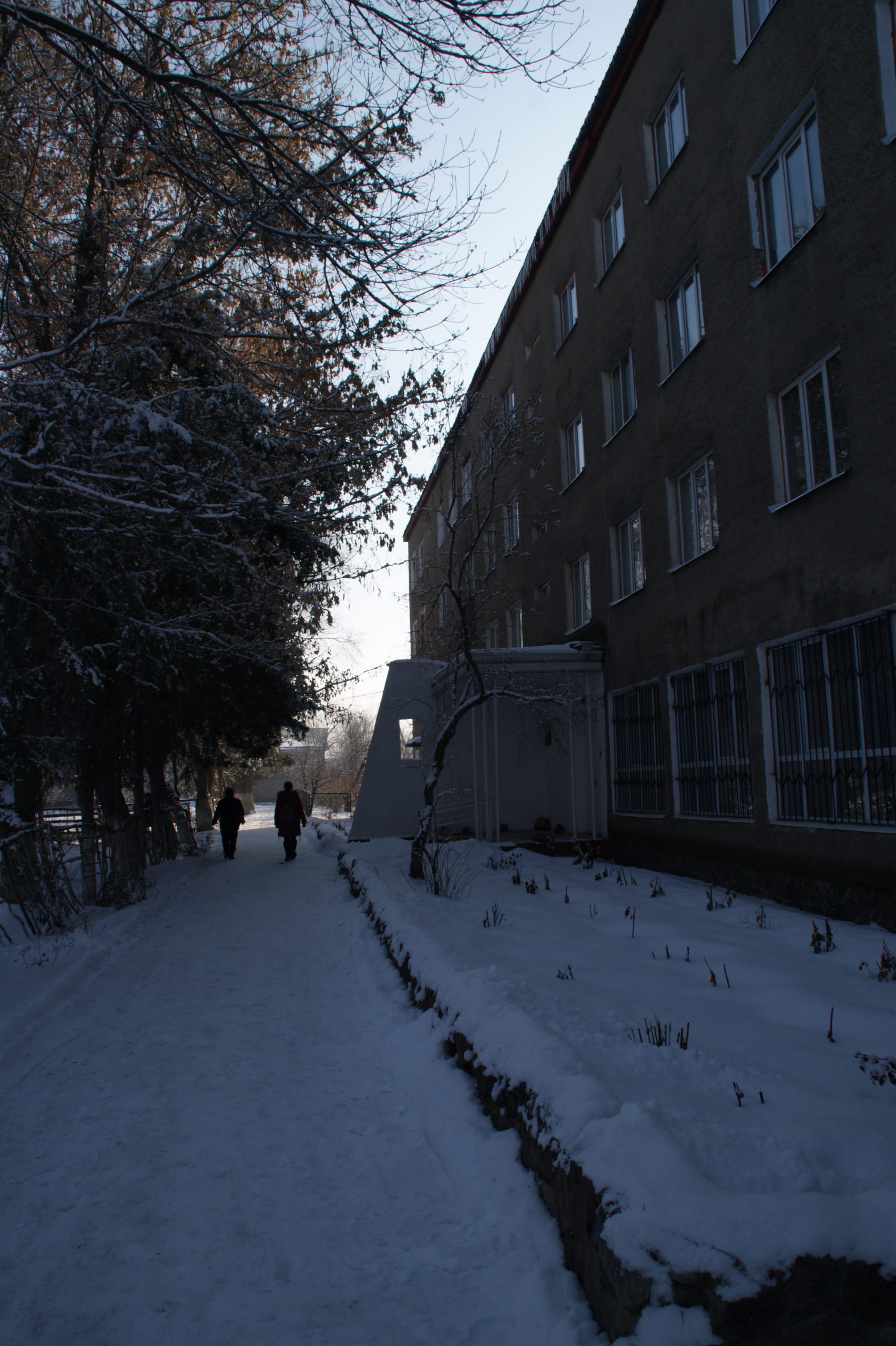
2019
In 2019, the 15th anniversary of the Social Village was celebrated in Bishkek. In addition to members of the Foerderverein, various politicians and artists were invited, as well as representatives of other NGOs in Kyrgyzstan.

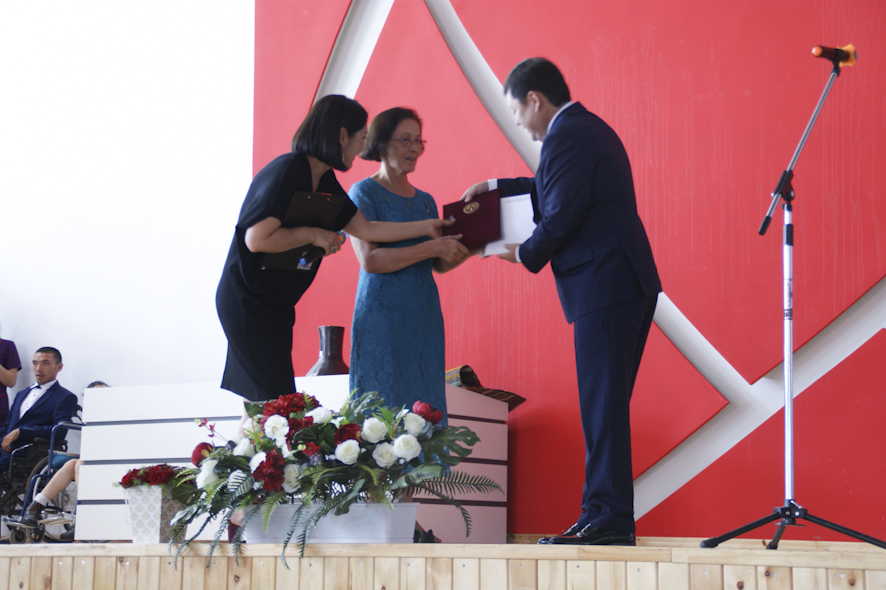
With the help of generous donations, it was possible to renew the heating system and the heating burners in 2019. As a result, the rooms are warm in winter and the housekeepers rarely have to add coal.
Another project was the construction of a covered veranda next to the 2nd house. In summer, parties are held here, people talk, dance and do gymnastics. The old sofas from the house invite to rest.
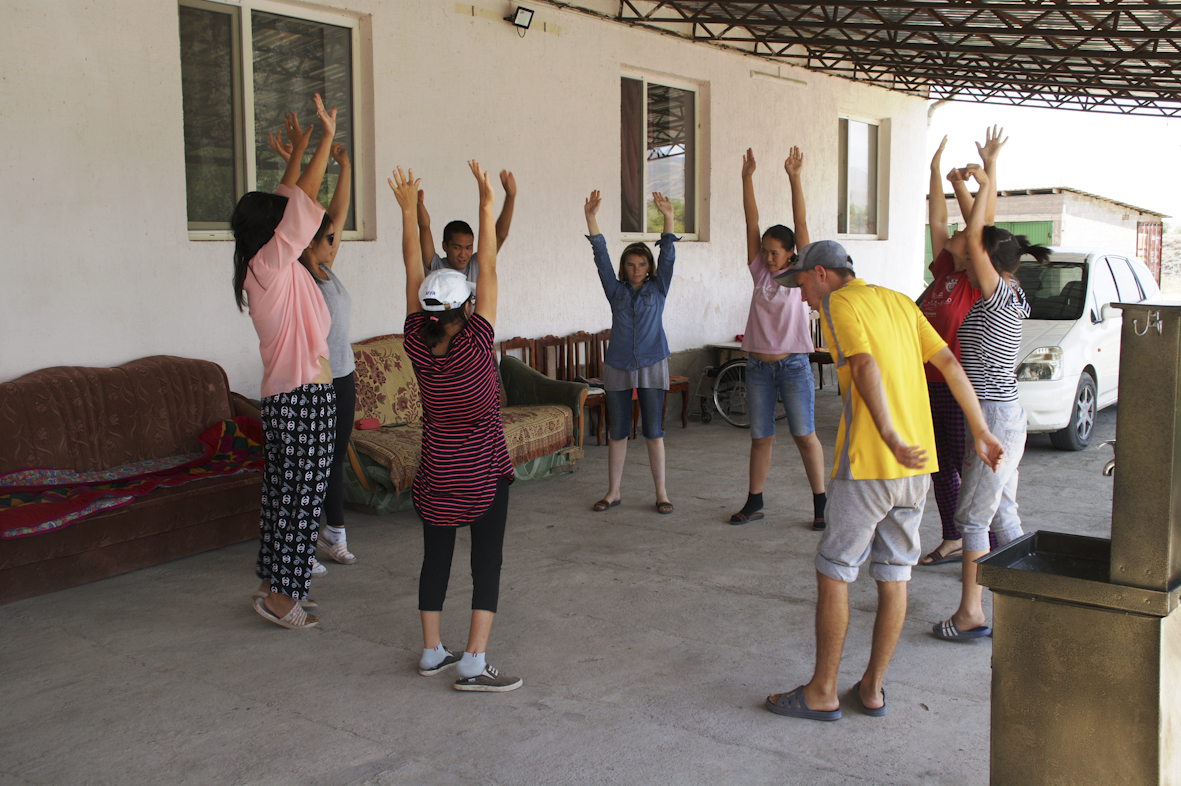
2018
In 2018, the second water project with Peter Wicke took place, again he came to the Social Village via SES. During his assignment, the construction of a rainwater collection system was on the agenda; water from the canal can also be fed into these cisterns in the summer. Through a relatively simple and easily repaired filter system, part of the water can be purified and used as drinking water. More photos of the cisterns under “Pictures”.

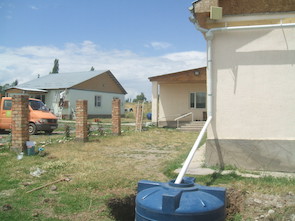
In addition, the old windows in the 1st house were replaced with insulated glass windows. Previously, the windows in most rooms could not be opened and the windows leaked, which caused uncomfortable temperatures in the rooms, especially in winter. The new windows can be opened, have fly screens and insulate well.
2017
2017 was marked by the opening of the 1st residential group in Kyrgyzstan at all!!! In spring, the first four residents moved in. They live in the first residential group for people with disabilities in Kyrgyzstan. The fact that people with disabilities live together independently in the form of a residential community and work independently was unknown there. The Social Village again enters new territory and the entire project is considered a pioneer project with exemplary status.
Without the help of the German Federal Ministry for Economic Cooperation and Development (BMZ,www.bmz.de), it would not have been possible to make this major investment.
Sebastian has brought the garden and plant cultivation up to scratch. The agricultural engineer was a volunteer in the Social Village Manas and has done a great job. In the summer, a variety of tasty vegetables will grow in the large vegetable garden of the outdoor living group. Thanks to his initiative and with the support of the German Embassy in Bishkek.

2016
At the beginning of 2016, two large donations enabled the purchase of 4 cows and 20 sheep. Thus, the foundation for a successful and productive agriculture has been laid. True to the motto: help for self-help.
A development long desired by some residents of the social village has been tackled: The planning of an outdoor living group. With the help of the German Federal Ministry for Economic Cooperation and Development and thanks to the generous donations of many people, the conditions for this were created: The purchase and handicapped-accessible reconstruction of a house (For more information, see the corresponding page: external living group).

2015
In 2015, the construction of the stable was a main development step in the social village, which we accompanied and supported from the Foerderverein. On the one hand, agriculture should contribute to the supply of the Social Village, but on the other hand, it is also an important work area for residents. A chicken coop also offers residents the opportunity to take on responsibility.

2014
Transfer of a small truck from Germany to Kyrgyzstan, through the Baltic States, past Moscow, Kazan and Ufa, over the Urals, through Kazakhstan, where we visit Astana, to the Social Village Manas, which we reach safely after 17 days and 7,000 km.

The second generation of volunteers has arrived: Sonja and Malin.

The planning for the construction of a stable for the animals of the Social Village Manas, for dairy cows, young cattle and sheep begins. Thanks to the support of Acacia from Basel, the fund for development cooperation, and with the help of the Förderverein, the stable can be built.

2013
The construction work for the second house is in its final stages and requires all the strength and energy of those involved. The opening of the house is on May 29th 2013, attended by the German Ambassador Gudrun Sräga, the Kyrgyz Minister of Social Affairs and many other dignitaries. But also old and new residents of the Social Village.

Our first intern is expected in the Social Village: Jürgen Stich, a mechanical engineering student from Munich. He lives and works in the social village for 8 weeks in April and May.
With the support of the German Embassy in Bishkek, a summer kitchen is built. Here the inhabitants can find shelter from the strong sun. Traditionally, Kyrgyz cook and eat outside in the summer.

There are now 16 residents living in the Social Village Manas – all of them young adults with disabilities. They work in the areas of felting, housekeeping and agriculture, and we can clearly see how the residents are developing.
In August 2013, Lena and Cassandra come to the Social Village to do a voluntary social year. They are the first two volunteers who come to the Social Village through the Waeltwaerts program and stay for a whole year. The residents are very happy about the motivated volunteers, “their” volunteers, who take care of them touchingly.

2012
We can build the long-awaited second residence with felt workshop – in cooperation with the German BMZ and the Friends of Waldorf Education. The construction work will start in spring, after a particularly hard winter.

Gulja our project leader was able to start a trip to Germany accompanied by her son Talaay. Her great wish was to visit again a German institution for people with disabilities and to ask her questions about the work. Thanks to Susanne Ganten and Bernhard Baumann-Ickes from the Weckelweiler Communities, the two Kyrgyz were able to spend two weeks in the Hubertusmühle workshops without much effort.
In the summer of 2012, we, Laurens Krämer, Catarina von Wedemeyer, Talaay Ismaelbekov and Bigi Möhrle drove the Sprinter in a three and a half week tour to the Social Village in Murake. The joy in the social village was enormous: finally, the residents can travel to their appointments, such as doctors, without any problems.

Inga Dietrich and Julia Lindig, two very committed women from Berlin, made their first trip to the social village in October. They are planning a German-Kyrgyz theater project with our residents. We are very, very grateful for this extraordinary impulse and are happy about their energy. The first rehearsals will take place in Kyrgyzstan in June 2013.
2011
Planning and fundraising for the second residence with felt workshop. In cooperation with the Friends of Waldorf Education, an application for funding for the project is submitted to the German Federal Ministry for Economic Cooperation and Development (BMZ) and is approved. The duration of the project: two years.

Search for a handicapped accessible transport vehicle. At the end of 2011, we are finally able to purchase a Mercedes Sprinter suitable for the disabled. The Ravensburg Vocational Training Center Adolf Aich (BBW) and its apprentices provided a new paint job free of charge, the Mercedes Workshop Ravensburg as sponsor checked the vehicle free of charge. Last but not least, the graphic designer Eva Engler created a vehicle lettering as a donation, so that the Sprinter is recognizable as a vehicle of the Social Village Manas.

2010
Completion and move-in of the residential group into the first, own, newly built residential house of the Social Village Manas.

2009
1st house: Laying of the foundation stone and start of construction of the first residential building on the acquired property. There is living space for six residents, people with disabilities. The construction is made possible by donations from Germany and the support of the German Embassy in Bishkek.

2008
Trial: Selling own felt products from the Social Village at an Advent bazaar in Germany. The entire proceeds go back to the Social Village.
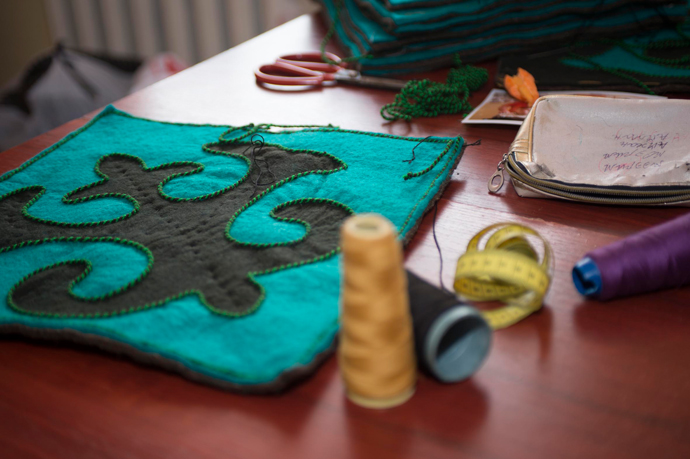
2007
Purchase of a plot of land (about 1.2 hectares). Here the social village is to be built, residential houses and workshops are to be built.

2006
First residential group: Renting and moving into the first residential house in Murake* for a group of 6 people with disabilities and selection of house parents.
Purchase of the first cow with calf with the donation of a Norwegian Camphill institution.

At the request of the parents’ initiative from Kyrgyzstan: foundation of the support association Sozialdorf Manas e.V. in Freiburg.
*Murake is a village about 60 km west of the Kyrgyz capital Bishkek, which is suitable for the realization of a “Social Village”. Murake is also the home village of Gulja Takyrbascheva and the social village meets there a very benevolent and helpful community.
2004
Parents’ initiative social village Manas: Foundation of the Public Association “Social Village Manas” in Kyrgyzstan.
In 2004, parents whose children attend school at the Nadjeshda* Children’s Center founded the Public Association Social Village Manas, a non-profit organization under Kyrgyz law. They are committed to building a social village for their growing children.
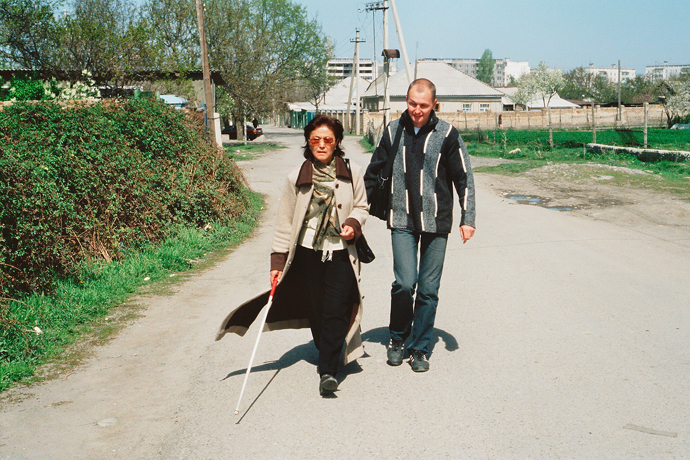
*Nadjeschda is a children’s rehabilitation center founded in 1989 by Karla Maria Schälike, a German living in Kyrgyzstan, and her Kyrgyz husband Igor Schälike. The center is a facility for children with disabilities. Nadjeschda was the godfather of the foundation of the social village Manas and brought together the people who are still active in the support association today.